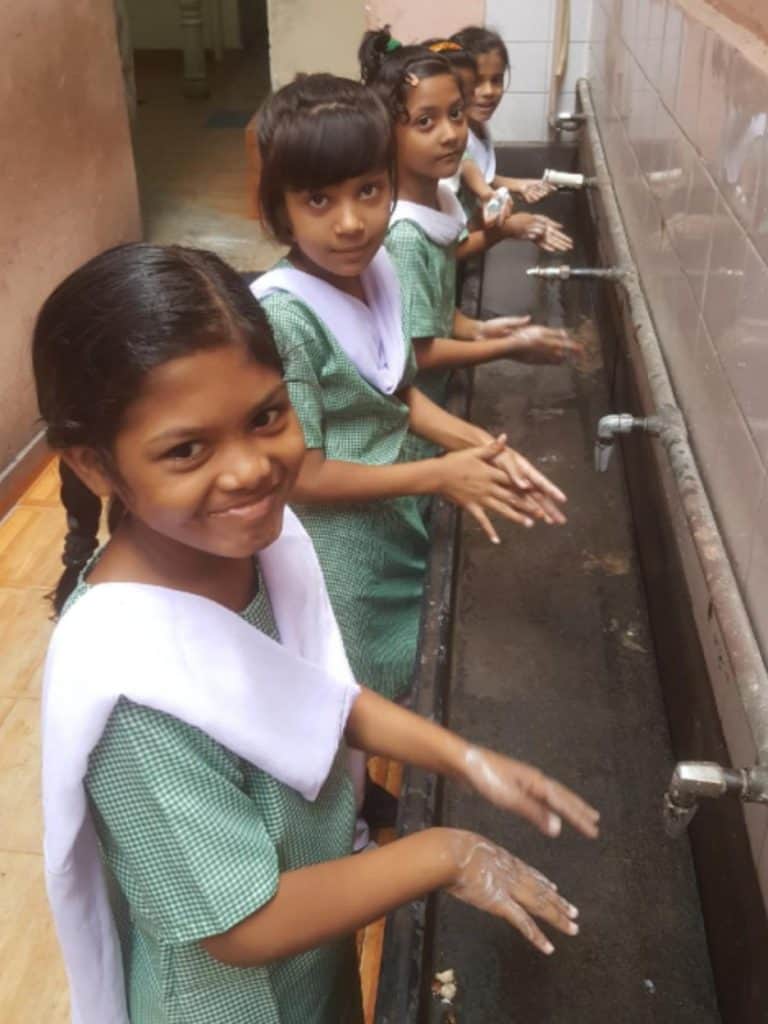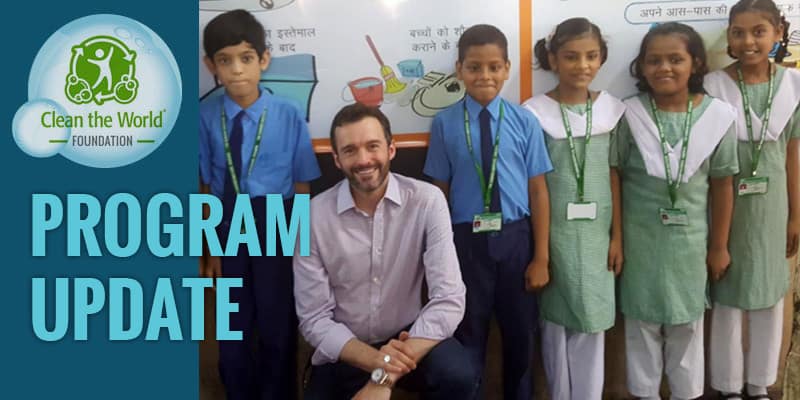Program update: India WASH in Schools
Our Executive Director, Sam Stephens, recently returned from a visit to our WASH in Schools Programs in India. Here’s his recap of the trip:
Last week, I spent several days traveling across India, visiting the locations of The WASH Foundation’s WASH in Schools program that is serving over 5,000 children in 36 schools in some of the world’s poorest communities. We’re working in partnership with our on-the-ground partner World Vision to conduct ongoing WASH education and access throughout the slums of Kolkata and several rural villages across the Bihar State. What I saw on my trip was truly incredible.
The goal of our WASH in Schools program, regardless of the location, is to teach handwashing on a regular basis so that, over a period of many months, kids become healthier and proper handwashing at the appropriate times becomes a normal part of a child’s daily routines. This focus on behavior change is critical to ensure the global health impact is sustained over time. Our program emphasizes daily handwashing instruction for the duration of the school year, while also ensuring the students have ongoing access to water, soap, and toilets at school and at home to make proper WASH behaviors possible. Thanks to this approach, after just six months, our ongoing monitoring and evaluation efforts have shown that over 80% of students are now applying proper WASH practices at the right times – without any reminders or prompts to do so. This indicates that we’re on track to achieve the behavior change that’s necessary for these kids to remain healthy over time.
One of the other most critical indicators, which shows the power of proper WASH programming, is the reduction in the disease burdens on a targeted population. After six months, the kids in the India program have experienced a 97% reduction in diarrheal diseases. That’s a huge success, and it’s possible because of the ongoing access to water, sanitation, and hygiene that our program provides. The kids are now healthier, which means they attend school much more regularly and get better grades overall. And, thanks to our focus on behavior change, they’re much more likely to graduate and pursue opportunities that will help them break the cycle of extreme poverty that has plagued their communities for generations.
Finally, another crucial indicator of the success of a WASH in Schools program is the way it affects behaviors at home. The kids are encouraged to teach proper handwashing to their parents and siblings as well, so that they are able to have the same access to water, sanitation, and hygiene at home as they do in school. On my visit, I spoke with dozens of parents – and they were all very excited to show me that they know how to wash their hands, and that they are now buying soap, avoiding open defecation, and using clean water, all thanks to the education their children are receiving. In fact, over 70% of parents of children in the program were observed to apply proper WASH practices without being prompted. That’s very exciting progress.
We’ll be conducting a final assessment at the end of the school year, so stay tuned for those results in the coming weeks. In addition, we’ll be conducting long-term assessments in the months following the end of the program to ensure the results achieved are going sustained long term.
As always, thanks for your support as we work to bring water, sanitation, and hygiene to vulnerable children in India and around the world!


Help us get viral by sharing this page.



